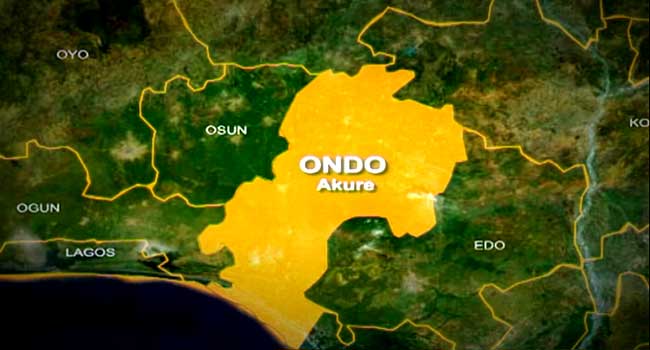Five communities in the Ugbo Kingdom in the oil-rich Ilaje local government area of Ondo State have rejected the planned appointment and promotion of Felix Emayero Damilohun as the monarch of the Erunna communities.
The communities, including Erunna-korigho, Erunna-Lagba/Odola, Erunna-Adun, Erunna-Asuku, Erunna-Ero, and Erunna-Uba, said any plan to install Emayero as the traditional ruler over them would lead to the breakdown of law and order in the oil-producing communities.
In a letter by the representatives of the communities to Governor Lucky Aiyedatiwa, the government was alerted to the likely breach of peace that the planned recognition and promotion of Emayero to obaship status in accordance with the application of Oba Fredrick Akinruntan, the Olugbo of Ugbo, would cause in the community.
The communities insisted that any appointment or promotion of Emayero as the monarch of Erunna communities in deference to the application of the Olugbo of Ugbo would be resisted by the rest of the communities, especially the Erunna-
Ikorigho community.
Oba Akinruntan has applied to the state government for the upgrade of Emayero from the traditional head (Oloja) of Erunna community to obaship status, consequent upon the directive of the government for the review of the Chieftaincy Declaration in the state.
However, the Erunna-korigho community, through Baale Ekujumi Olabode, Mekuleyi Oluseye, Araki Adebowale, Apostle Giga Lowo Segun, Ikuenogbon Banjo, Iperepolu Tade , Atiye Timileyi, Ojajuni Felix and Sadare Idowu said the letter seeking the promotion and recognition of Emayero did not enjoy the blessing of their community.
The communities said their rejections of Emayero as monarch were based because Erunna is not a single community, but comprises six distinct and independent communities, with no common ancestral or blood ties.
They said the initial appointment of the Oloja was not to the knowledge of the peace-loving and law-abiding indigenes of the Erunna-Ikorigho Community, who were the first settlement among all Erunna communities and one of the largest ancient settlements along the coast of Ilaje land.
According to them, Emayero’s being proposed for elevation to Obaship status for Erunna communities was single-handedly done by Oba Akinrutan and paraded among the Okoro-Ajiga clan without public proclamation and declaration in Erunna communities.
The Communities said if Oba Akinrutan desires to appoint Emayero from the Okoro-Ajiga clan as Oloja, and now seeks his elevation to Obaship status, they urged the government to restrict the appointment to the Erunna Okoro-Ajiga Community, and not to extend such authority to Erunna Ikorigho Community, which is the seat of Alagho, in the interest of peace and order.
The letter read: “We humbly appeal to His Excellency to note that Mr Felix Emayero (Damilohun) is to be elevated to Obaship status, his domain should be restricted strictly to Erunna Okoro-Ajiga Community, or to any other Erunna community that agrees with Oba Akinrutan’s proposal, and not extended to Erunna-Ikorigho Community to prevent imminent communal conflict.
“The Alagho of Ugboland remains the rightful and recognised traditional head. Whenever the Erunna Ikorigho Community deems it fit to have an Oloja or Oba, the people themselves will decide and present such nomination to the Alagho for proper ratification and onward submission to the Executive Governor of Ondo State.
“The indigenes of the Erunna-Ikorigho Community are direct descendants of Odogun and Tapa, sons of Akinsele, and are entitled to the Alagho throne by ancestral rights. Should the people of Erunna-Ikorigho ever desire an Oloja, they will freely choose their candidate and recommend him to Oba Elias Ikuomola, the Alagho, who will then seek formal legitimacy from the Ondo State Government in accordance with due traditional procedure.
“The Ondo State Government is kindly urged to consider the potential for serious conflict that may arise if Oba Akinrutan’s application is approved in its current form.
“The State Government should also curb the excessive influence and interference of the Olugbo and ensure that all communities in Ugboland retain their right to choose and recommend their traditional rulers freely and in line with established customs and traditions.”















